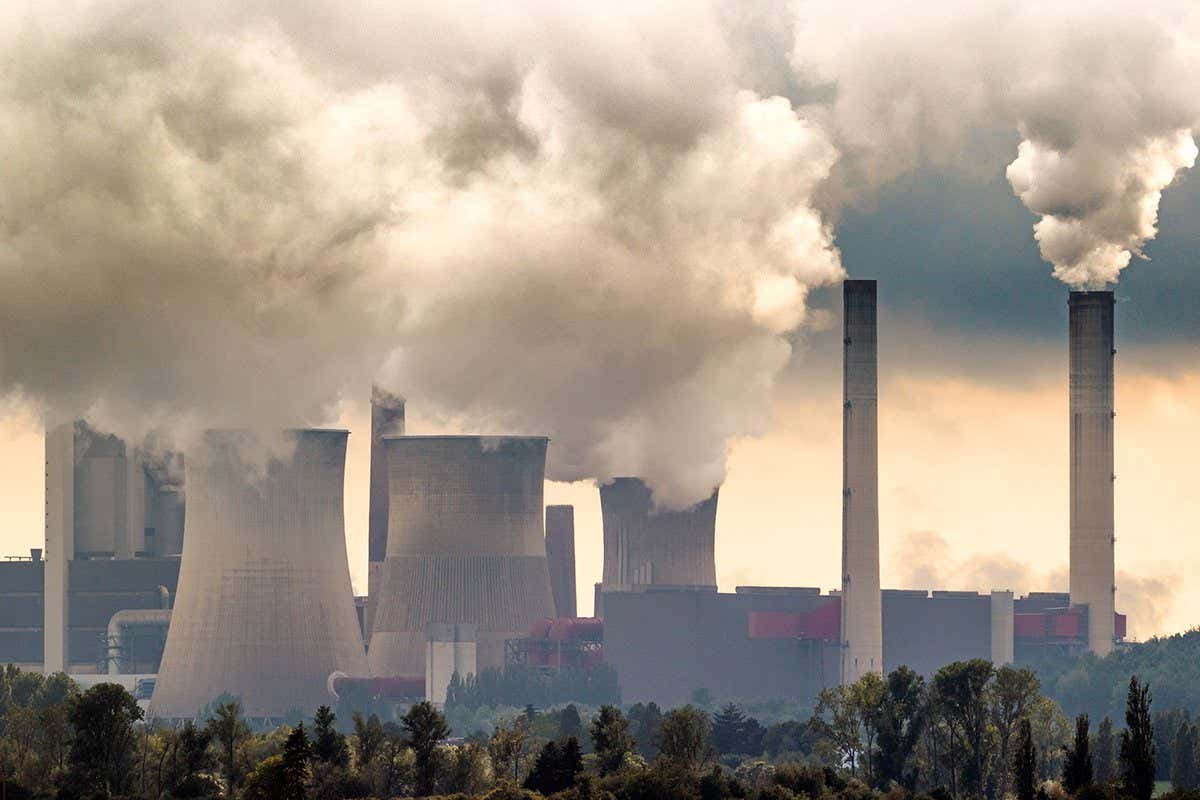Fossil Fuels Fuel AI: A Shocking Truth
The rise of artificial intelligence (AI) is transforming our world at an unprecedented rate. From self-driving cars to medical diagnoses, AI's potential seems limitless. But behind the gleaming screens and sophisticated algorithms lies a shocking truth: the AI revolution is heavily reliant on fossil fuels. This dependence raises significant environmental concerns and challenges the narrative of AI as a clean, green technology.
This article delves into the surprisingly dirty secret of AI's energy consumption, exploring the connection between fossil fuels and the powerful data centers that power AI, and outlining the implications for the future of both AI and the planet.
The Energy-Hungry Beast: Data Centers and Their Carbon Footprint
The backbone of AI is the vast network of data centers globally. These facilities house the powerful servers that train and run AI algorithms. The process of training complex AI models, especially deep learning models, is incredibly computationally intensive, demanding enormous amounts of energy. This energy consumption translates directly into a significant carbon footprint.
- Massive power consumption: A single large data center can consume as much electricity as a small city. This energy demand often relies heavily on electricity generated from fossil fuels, particularly coal and natural gas.
- Cooling systems: The immense heat generated by servers requires sophisticated cooling systems, further contributing to energy consumption and carbon emissions.
- Manufacturing and transportation: The production of computer hardware, including the servers themselves, requires significant energy and resources, leading to substantial embedded carbon emissions. Transportation of these components adds to the overall environmental impact.
The Unsustainable Path: The Growing Demand for AI and its Fossil Fuel Dependence
The demand for AI is only increasing. As more industries adopt AI technologies, the energy demands of data centers will continue to skyrocket, potentially exacerbating climate change. Without significant changes, the AI revolution risks becoming an environmental catastrophe.
Moving Towards a Greener Future for AI: Solutions and Challenges
Fortunately, there are ongoing efforts to address the environmental impact of AI. These include:
- Renewable energy sources: Transitioning data centers to renewable energy sources like solar and wind power is crucial. This requires significant investment and infrastructure development.
- Energy-efficient hardware: Developing more energy-efficient hardware, including improved processors and cooling systems, is essential to reducing the energy footprint of AI.
- Algorithm optimization: Optimizing AI algorithms to be more efficient and require less computing power can significantly reduce energy consumption.
- Data center location optimization: Strategic placement of data centers in locations with access to renewable energy and cooler climates can improve energy efficiency.
However, transitioning to a greener AI ecosystem faces considerable challenges:
- High upfront costs: Investing in renewable energy infrastructure and energy-efficient hardware requires significant capital investment.
- Technological limitations: Current technologies may not be sufficient to meet the exponentially growing energy demands of AI.
- Regulatory frameworks: Effective regulatory frameworks are needed to incentivize and mandate the adoption of sustainable practices in the AI industry.
Conclusion: A Call for Sustainable AI Development
The dependence of AI on fossil fuels presents a critical challenge. The future of AI cannot be divorced from the environmental consequences of its energy consumption. A concerted effort involving researchers, policymakers, and industry leaders is required to ensure the development and deployment of sustainable and environmentally responsible AI technologies. Failing to do so risks jeopardizing the very future we hope AI will help us build. The time to act is now. Let's ensure that the AI revolution is powered by innovation, not by the further depletion of our planet's resources.
Keywords: AI, Artificial Intelligence, Fossil Fuels, Data Centers, Energy Consumption, Carbon Footprint, Renewable Energy, Sustainability, Green AI, Climate Change, Environmental Impact, Sustainable Development.

